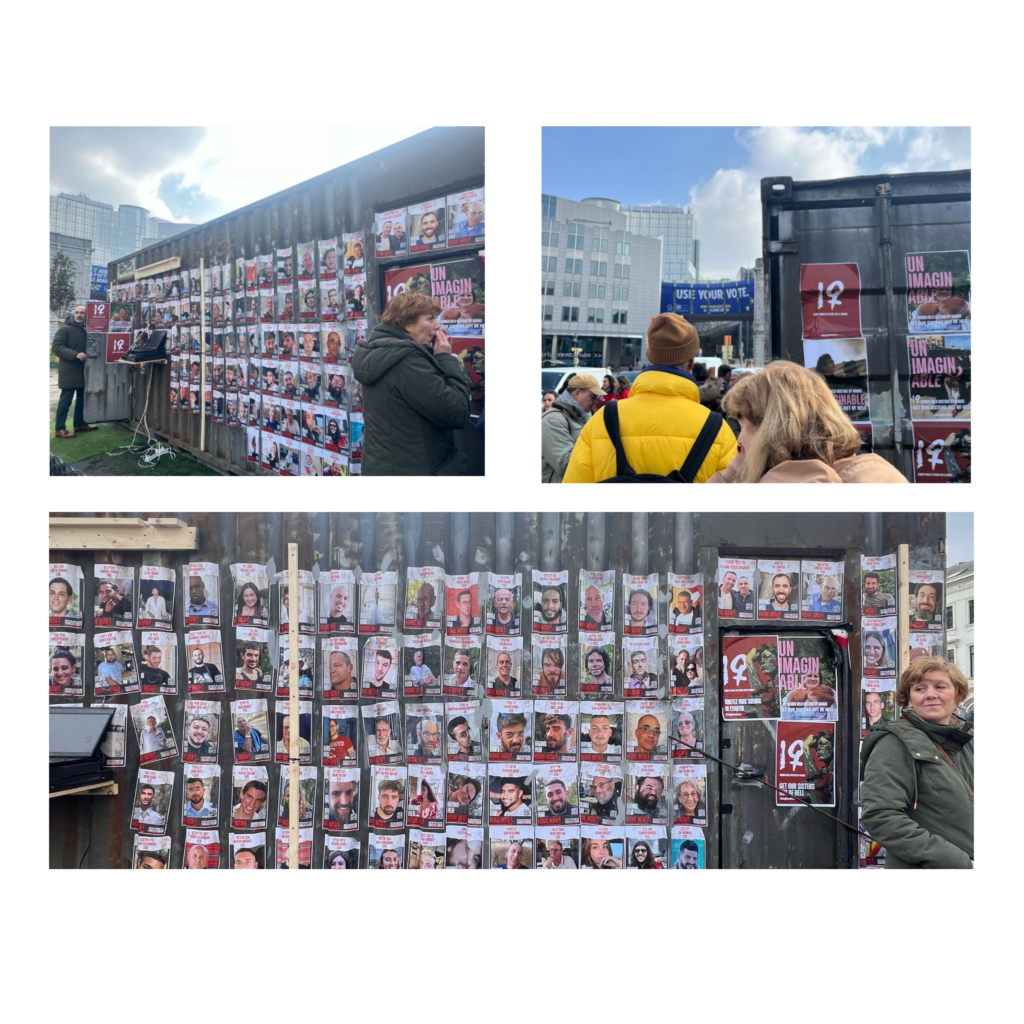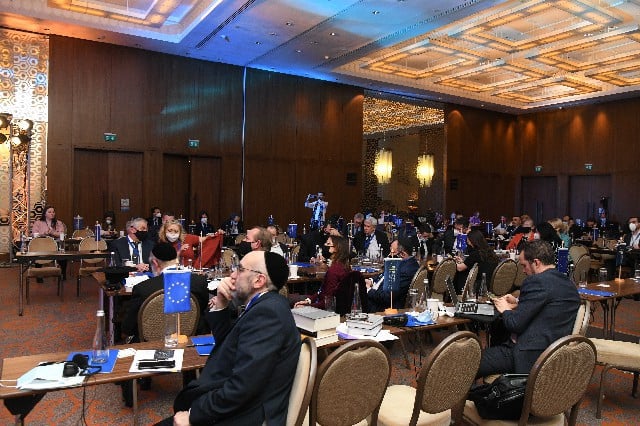Israel will be allowed to compete in the 2024 Eurovision Song Contest with the reworked entry “Hurricane,” organizers informed Jerusalem on Thursday.
After the European Broadcasting Union (EBU), which organizes the annual musical extravaganza, threatened to disqualify two of Israel’s entries over perceived political messaging, the Kan broadcaster worked to modify the lyrics to ensure the country’s participation in May.
The last lines of “October Rain” described the condition of Israelis during the Oct. 7 attacks, in which some 1,200 people were slaughtered: “There’s’ no air left to breathe / No place, no me from day to day.”
In one of the verses, the Israeli contestant, Eden Golan, sang the word “flowers,” which is Israel Defense Forces slang for fallen soldiers, but which does not carry that connotation for European viewers.
Israel’s second choice song, “Dance Forever,” was an apparent reference to the massacre at the Supernova music festival near Kibbutz Re’im, where Hamas terrorists murdered 364 people on Oct. 7.
Kan has said that the Jewish state’s third submission tells the story of a “young woman who is surviving a personal crisis.” The song, set to the tune of “October Rain,” will be presented to the public during a live TV broadcast on Sunday.
Last month, the EBU reaffirmed that Israel would be allowed to compete amid the war against Hamas in Gaza, rejecting parallels drawn by pro-Palestinian activists with Russia’s exclusion over its invasion of Ukraine.
“Comparisons between war and conflict are complex and difficult and, as an apolitical media organization, it is not our place to make them,” EBU Director-General Noel Curran told AFP.
A review by EBU’s governing bodies found “that the Israeli public broadcaster Kan met all the competition rules for this year and can participate, as it has for the past 50 years,” Curran noted.
The EBU head said his organization was “aware” of voices calling for the Jewish state to be excluded from this year’s competition.
“However, the Eurovision Song Contest is a non-political musical event and a competition between public service broadcasters that are members of EBU. It is not a competition between governments,” he said.
The Eurovision Song Contest 2024 is taking place in Malmö, Sweden, following the Scandinavian country’s victory at the 2023 song contest. Golan, 20, will represent the Jewish state in the second semifinal on May 9. The grand final will take place two days later.
Last year, Israeli pop star Noa Kirel finished in third place in the Eurovision final in Liverpool, behind Sweden and Finland.

















